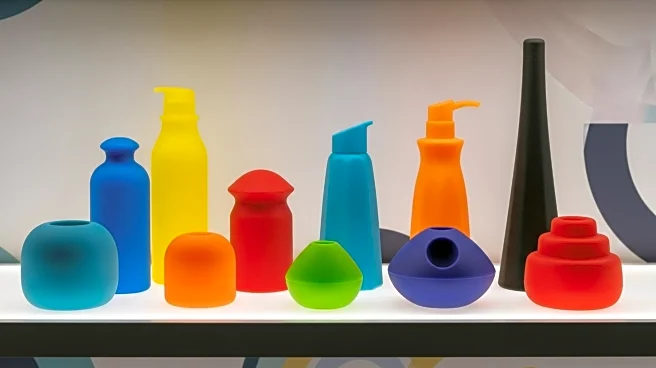What is the story about?
What's Happening?
The Europe silicone market is anticipated to grow significantly, reaching an estimated value of US$ 6 billion by 2032, up from US$ 4.2 billion in 2025. This growth is driven by a compound annual growth rate (CAGR) of 5.1%. Silicone is increasingly utilized across various industries such as automotive, healthcare, construction, and electronics due to its versatility, thermal stability, and biocompatibility. The demand is particularly strong in applications requiring high performance under extreme conditions, including medical implants, electrical insulation, sealants, and adhesives. Germany leads the market due to its robust automotive sector, advanced healthcare infrastructure, and well-established construction industry. France, the U.K., and Italy also contribute significantly, supported by investments in renewable energy projects and green building initiatives.
Why It's Important?
The expansion of the silicone market in Europe is crucial for several industries, particularly automotive and healthcare, which rely heavily on silicone for its durability and biocompatibility. The growth reflects a broader trend towards sustainability and innovation, with Europe positioning itself as a leader in bio-based and recyclable silicone products. This aligns with EU sustainability policies and supports the region's industrial ecosystem. The increased demand for energy-efficient buildings and renewable energy infrastructure further underscores the importance of silicone in construction applications. As industries prioritize sustainability, the development of bio-based silicones represents a significant opportunity for growth.
What's Next?
The silicone market in Europe is expected to continue evolving with advancements in bio-based and recyclable silicone products. Strategic partnerships and acquisitions are likely to reshape the market landscape, with companies collaborating with healthcare and electronics manufacturers to develop high-performance silicone products. The focus on sustainability and innovation will drive further adoption, particularly in renewable energy technologies such as solar panels and wind turbines. As digitalization and smart materials emerge as transformative trends, the integration of smart silicones with sensors for real-time monitoring in medical and industrial applications is anticipated.
Beyond the Headlines
The emphasis on sustainability in the silicone market highlights ethical and environmental considerations, particularly in the development of bio-based and recyclable products. This shift towards eco-friendly materials aligns with broader EU climate targets and reflects a growing consumer demand for sustainable solutions. The innovation in material science is expected to enhance performance in various applications, contributing to long-term shifts in industry practices and consumer preferences.

















